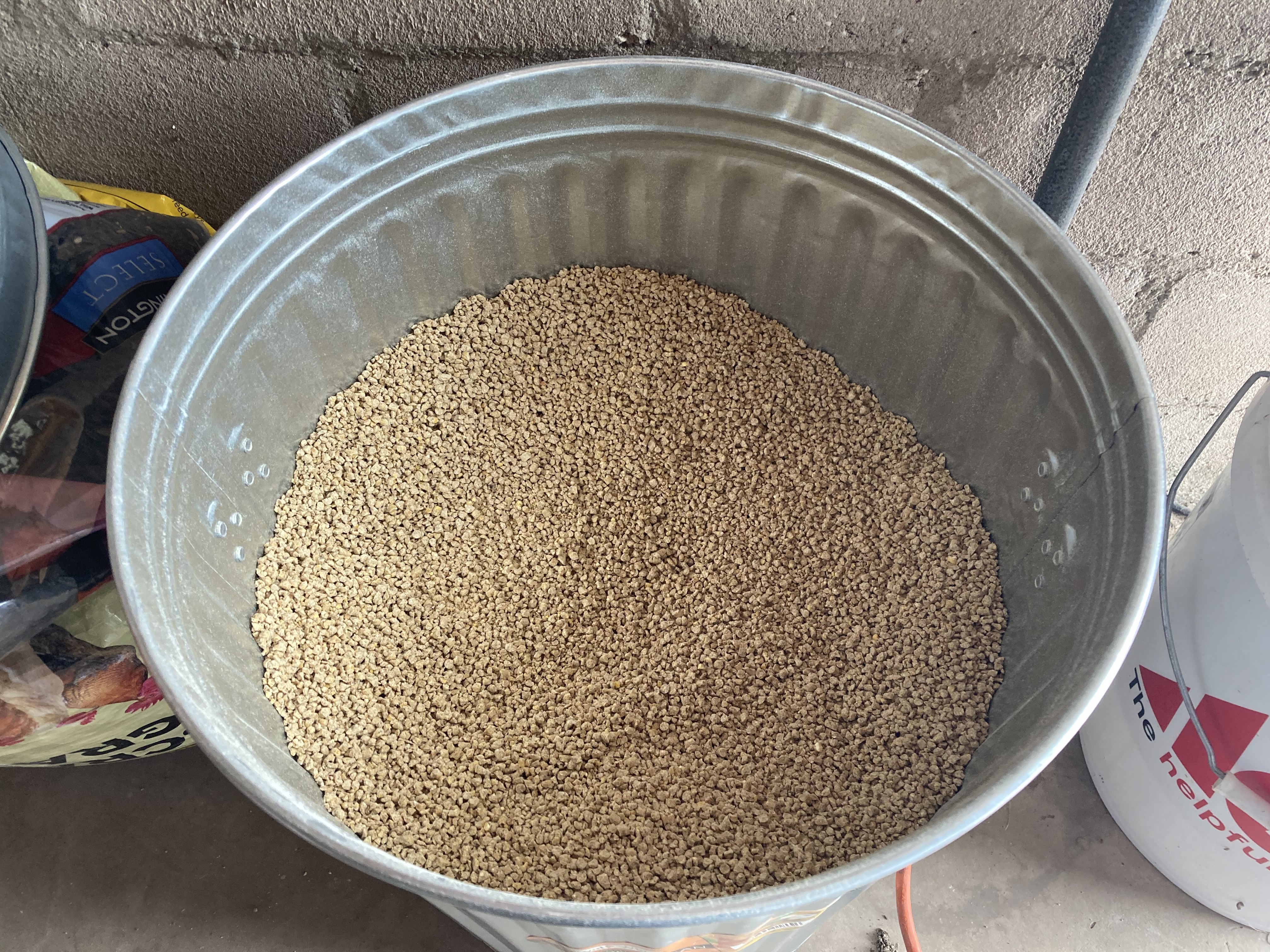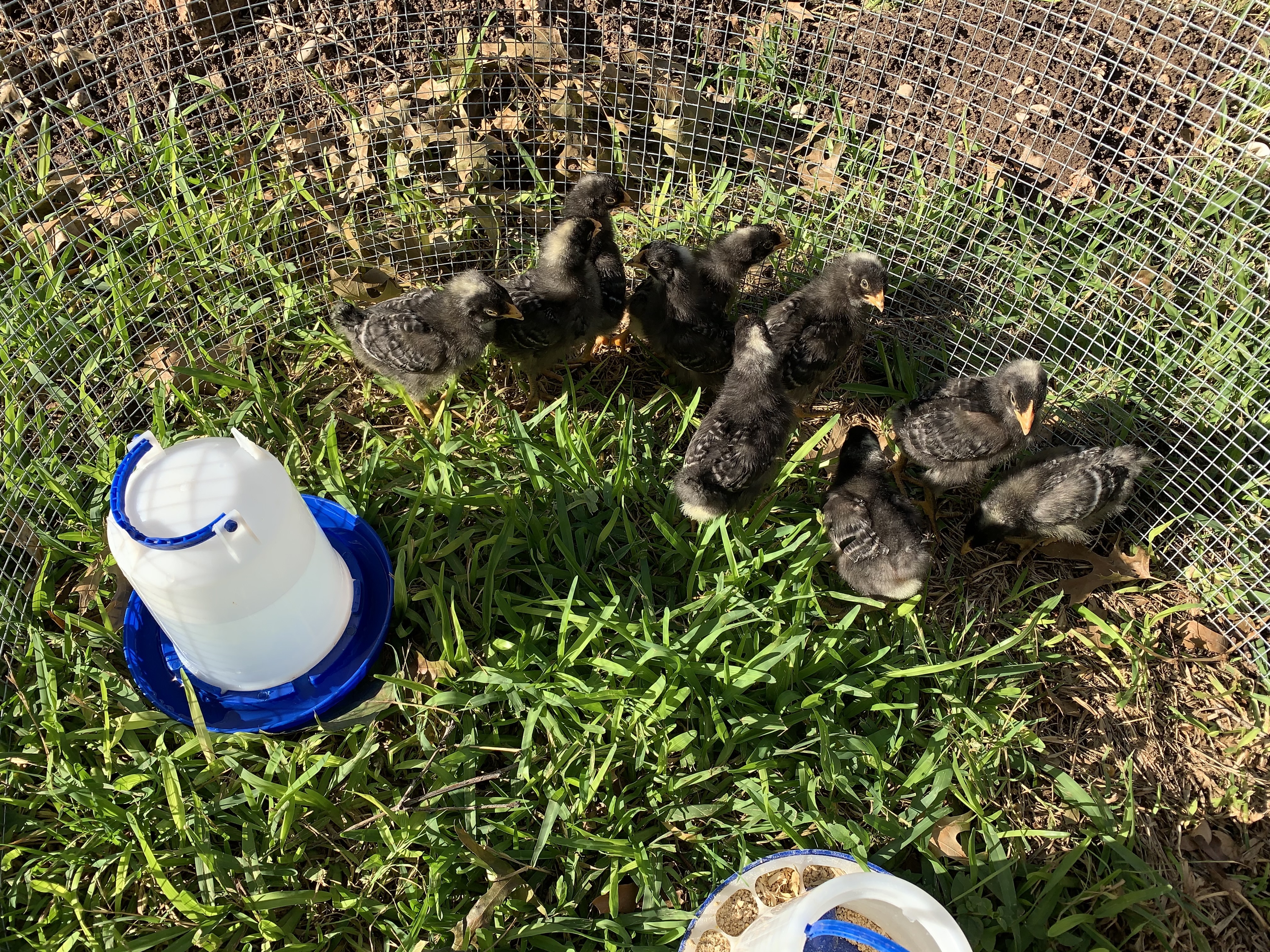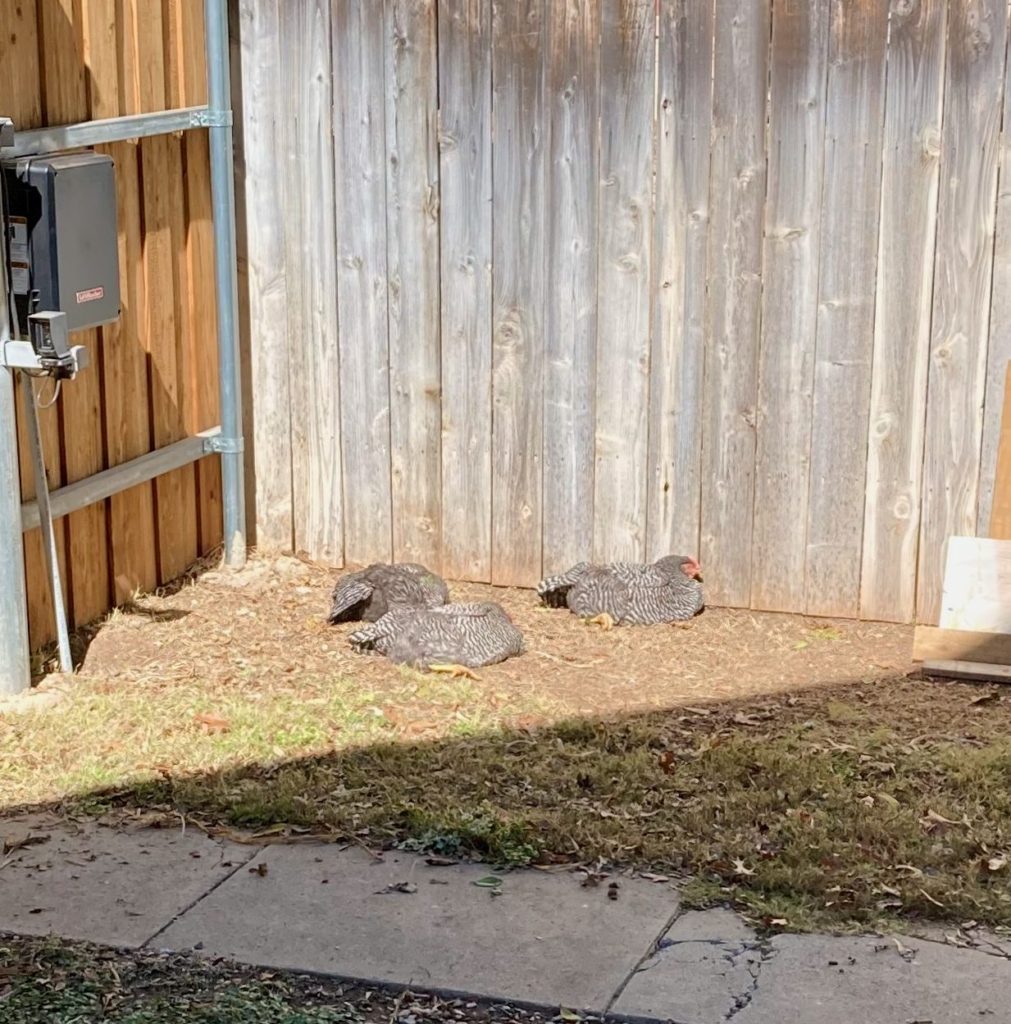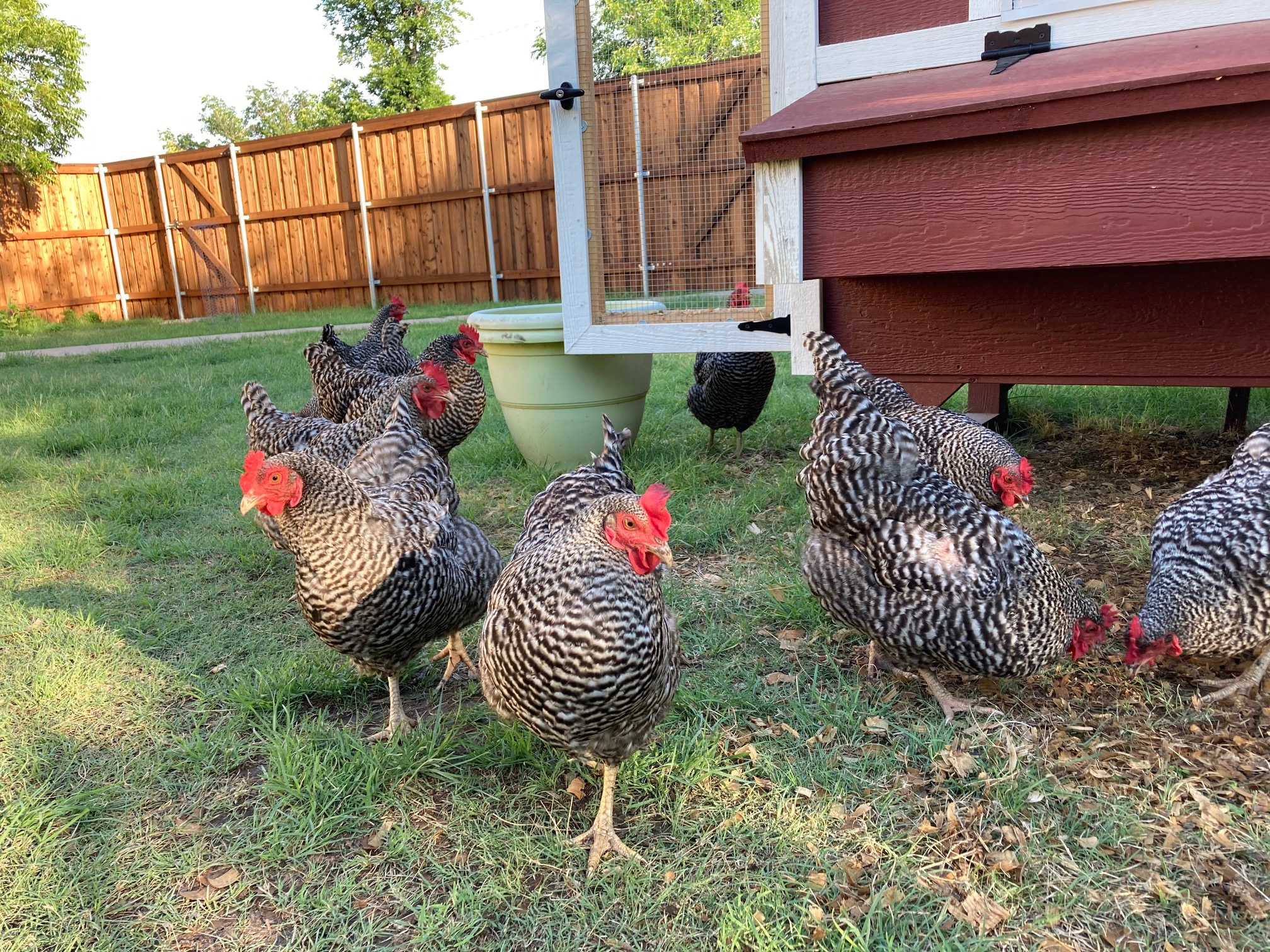Besides food, water, and shelter, what other things do you need to make sure you have a health backyard flock? The answer might surprise you: SUNLIGHT. Chickens were not meant to be raised in darkness or shadowy areas of your yard that never receive sunlight.
Sunlight is necessary for a chicken’s health for the following reasons:
- Triggers ovulation
- Regulates sleep/wake cycle
- Provides Vitamin D3
- Kills pathogens
- Provides warmth during winter and while sunbathing
Keep reading to learn more about the reasons why sunlight is necessary to have a healthy backyard flock.
1. Triggers Ovulation for Egg Laying
Ovulation in chickens is triggered by the sunlight. Daylight enters a chicken’s photosensitive gland in her eye that triggers ovulation. If this trigger does not happen, then a chicken will not ovulate and will not be able to lay an egg.
Chickens require at least 14 hours of daylight per day to lay eggs, which is why chickens will slow down or pause laying eggs during the winter. Some chicken farmers will provide artificial light for their hens during the winter months to help the chickens to continue to lay eggs through the winter.
For most backyard chicken raisers, the main reason to have chickens is for their eggs. If your chickens are not laying eggs regularly and it’s not due to the season (less eggs or none in winter) or their age (assuming they have started to lay eggs and are not too old), then you might consider checking the amount of sunlight they receive during the day.
2. Regulates Sleep/Wake Cycle
Chickens are awake when there is light. When there is enough light to see, the chickens will get antsy and ready to be let out of their coop. If the coop is positioned where it won’t get direct sun until a little later in the morning you might be able to buy a few extra minutes before you need to let them out.
Chickens have a very predictable schedule every day: they are awake and alert as the sun comes up, lay eggs in the late morning to late afternoon, then go to roost at dusk, and remain silently sleeping until the next day. If the chickens are exposed to sunlight too late in the morning, their egg production cycle can be disturbed resulting in ovulation occurring later in the day and maybe a day or two of missed egg laying.

When there is enough light to see, chickens will be awake and on watch for potential predators. In general, chickens require 6 to 8 hours of sleep every day. Sleep is essential to chickens to process new information and helps build their body’s natural immunity.
Make sure your neighbors don’t have a bright porch light that is shining in the coop all night long. Try to position the coop in your yard so that street lights don’t shine into the coop.
3. Sunlight Provides Vitamin D3
Vitamin D3 is a necessary nutrient for a chicken to maintain proper health. Vitamin D is needed for the assimilation of calcium. Calcium is a major ingredient in egg shells and when there is a deficiency in calcium, egg shells become weak and thin. Calcium needs increase with a hen’s age and in warm weather.
Baby chicks can experience rickets if they did not receive enough Vitamin D before hatching. Sometimes chicks can also develop rickets after hatching if they experience a severe Vitamin D deficiency within the first few days or weeks of life. Rickets can result in beak and leg deformities in chicks.
To provide the optimal levels of Vitamin D3, it should be supplemented in a chicken’s diet. Usually there is enough of the essential vitamins and minerals in the feed that you give to your chickens at their different life stages.
For chicks, you will want to feed them a starter feed for at least the first 6 weeks. In my post What to Feed Chickens by Age, I give a detailed breakdown of the different types of feed that are available for each life stage of your chickens.
It can be difficult to know if your chickens are getting enough protein, calcium, and other vitamins and minerals, which is why feed is a great starting foundation to a chicken’s diet. It’s also good to supplement with kitchen scraps to balance out their diet. See The Natural Diet of Chickens for more details on what types of kitchen scraps are favorites of chickens.

Alternatively, Vitamin D3 can be obtained through direct exposure to sunlight. The key here is that the sunlight must be direct and not through a window pane or filtered through a curtain in order for the Vitamin D3 to be properly assimilated in the body.
In addition, sunlight during the middle of the day provides more exposure to Vitamin D3 than sunlight at the end of the day. To get exposure to sunlight for the Vitamin D3 benefits, time it when the sun is highest, between 10:00 AM and 3:00 PM for maximum benefit.
4. UV Rays Kill Pathogens
In the late 1800s, scientists discovered that UV rays from sunlight were able to kill several types of bacteria, including anthrax, plague, and staphylococcus. By allowing your chickens access to direct sunlight several times a week, you might be able to keep them free of any bacteria or viruses than can cause illness.
When my chickens were babies, we would transport the chicks outside in their brooder so both could get access to sunlight and fresh air. Our brooder was a large cardboard box set-up in a spare bedroom that was being remodeled. We would take the entire brooder and all chicks outside for 15 to 30 minutes a few times a week. Keep in mind that chicks still have a difficult time maintaining a proper body temperature, so only do this on warm days and make sure that the area you let the chickens in will allow them to stay close to each other for warmth. Obviously, also make sure that there is no cat or dog around that will try to eat them while they get some sun.
While we let the chicks play in the grass, their brooder would be put in direct sunlight to help kill any germs. It was great to allow the brooder to air out since it can get very stinky. It almost didn’t matter how often we changed out the bedding, it still seemed to stink. Airing out the brooder a few times a week outside seemed to help with the odor. Don’t worry about the baby chicken stench, though, since it doesn’t last too long. Chicks will only stay in the brooder for about 3 weeks before they can transition to a coop outside.

We have also positioned the chicken run in a way that it gets sunlight at least part of every day. The sun helps to dry out the run after snow or rain and will also dry up droppings so that it’s not a muddy, poopy mess in the run.
5. Warms Their Bodies
Another benefit of allowing your chickens access to sunlight is that it helps to naturally warm their bodies. This is especially important on cold days. Although chickens are more sensitive to extreme heat, they can also use a bit of help warming up when the temperatures drop below freezing. Sunlight is a great way to naturally provide them warmth without the dangers of heat lamps in a chicken coop.
Sunlight also provides chickens with warmth and comfort while sunbathing. Chickens love to dust bathe and this activity will oftentimes be done in a sunny location.

I have a couple of chickens that love to sunbathe year-round. They will lay in the sun during cold days, but I often find them laying out in the sun when the weather is warmer too. All my chickens have different personalities and preferences, and some take great pleasure in laying in the sun with a leg stretched out for a few minutes to warm up while the other chickens are perfectly content laying in the shade during the heat of the afternoon.


